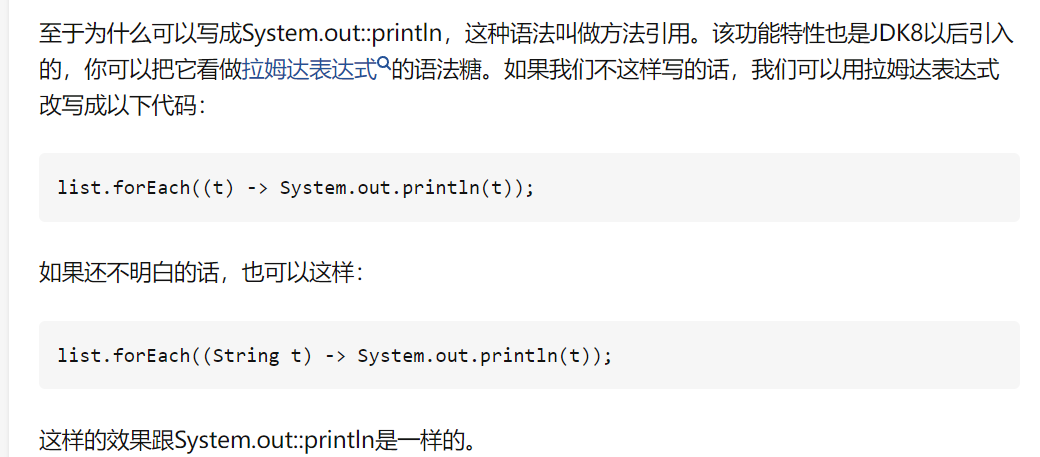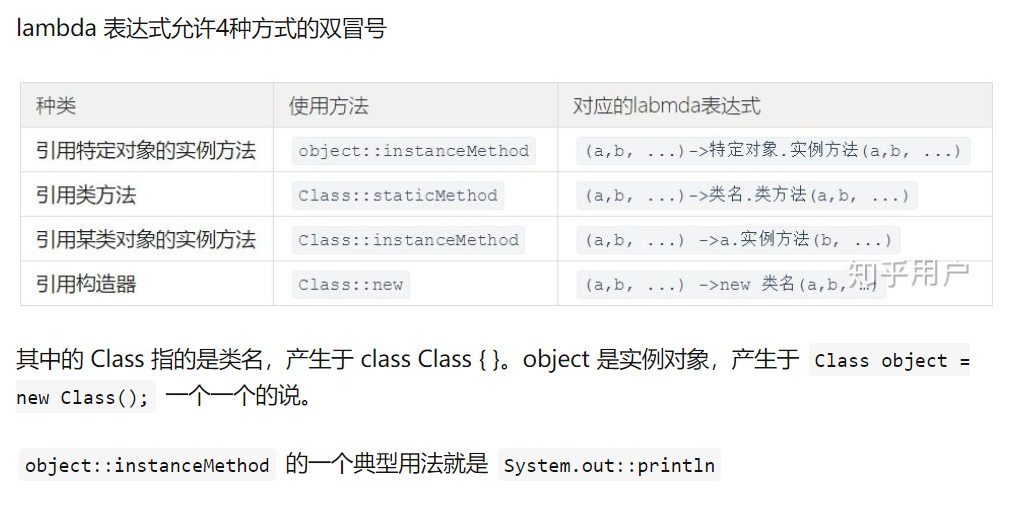lambda表达式
public class Day07 { public static void main(String[] args) { // I i = n -> { // int m = 24; // int ru = m * n; // return ru; // }; // System.out.println(i.say(3)); // I i1 = () -> new Day07().m1(); // i1.say(); // I<Integer> i = (m) -> { // int n = 2; // int num = n * m; // return num; // }; // System.out.println(i.say(34)); // //局部变量l相对于lambda函数内部为final类型的常量,只能访问,不可修改 // int l = 10; // I i = () -> { // int a = 10; // l = l + a; // }; // // I i = Day07::m1; //等价于 ()->Day07.m1() // i.say(); //class::function ::称为方法引用,实际是对传入的数据直接调用class的function方法进行处理 //如:list.forEach(System.out::println) 调用System.out的println方法对forEach遍历到的元素打印输出 I i = n -> n; I i1 = Day07::m1; //等价于 (s)-> Day07.m2(s),这里已完成对接口I的say方法的实现(运用时必须保证接口只有一个未实现的方法) System.out.println(i1.say("ss")); } private static String m2(String s) { return s; } public static String m1(String a) { System.out.println("m1"); return a; } } interface I { public String say(String s); public static String sa() { return "qa"; } }
2、关于::
class::function ::称为方法引用,实际是对传入的数据直接调用class的function方法进行处理
![]()
![]()





 浙公网安备 33010602011771号
浙公网安备 33010602011771号